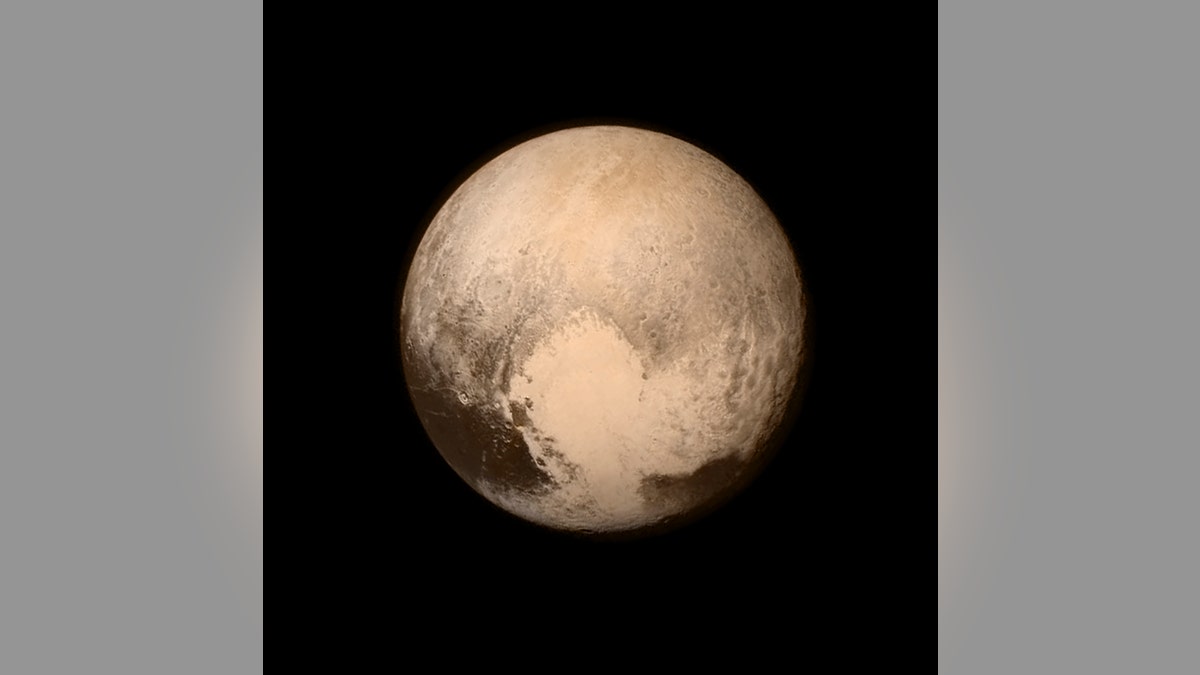Fox News Flash top headlines for Oct. 25
Fox News Flash top headlines for Oct. 25 are here. Check out what's clicking on Foxnews.com
NASA Administrator Jim Bridenstine believes that Pluto should be a planet again.
“I am here to tell you, as the NASA Administrator, I believe Pluto should be a planet,” he said, to applause during a wide-ranging speech at the International Astronautical Congress in Washington D.C. Friday.
Bridenstine later responded to a question on his Pluto stance by citing its buried ocean, its moons and its multilayered atmosphere. “I like there being nine planets, how about that?” he added.
NASA ANNOUNCES NEW VIPER MOON ROVER THAT WILL EXPLORE THE LUNAR SURFACE
Pluto lost its planet status in 2006 when it was controversially demoted to “dwarf planet” by the International Astronomical Union.

Pluto file photo. (Photo by NASA/APL/SwRI via Getty Images)
This is not the first time that Bridenstine has voiced his desire to see Pluto become a planet again. "You can write that the NASA administrator declared Pluto a planet once again. I’m sticking by that, it’s the way I learned it and I’m committed to it,” he said during a recent speech at the University of Colorado.
The former Oklahoma congressman is not alone in his views on Pluto. A number of scientists also believe that the dwarf planet should be promoted to its former status.
NASA ASTRONAUT EYES MOON JACKPOT, RANGING FROM SPACE MINING TO POLAR ICE
In a paper published in the journal Icarus last year, a group of researchers argued that the reason Pluto lost its planet status is not valid.
The IAU defines a planet as a celestial body that “has cleared the neighborhood around its orbit,” which means that it must be the largest gravitational force in its orbit.
PLUTO SHOULD BE A PLANET AGAIN, RESEARCHERS ARGUE
The definition of a planet should be based on its intrinsic properties, said Philip Metzger, a planetary scientist at the University of Central Florida and lead author of the paper published in Icarus, as opposed to properties that can change, such as the dynamics of its orbit.
Metzger recommends a planet classification based on whether it is sufficiently large so that its gravity allows it to become spherical in shape.
Neptune's gravity influences its neighbor Pluto. The dwarf planet also shares its orbit with frozen gases and objects in the Kuiper belt, researchers note.
CLICK HERE TO GET THE FOX NEWS APP
Fox News’ Chris Ciaccia contributed to this article. Follow James Rogers on Twitter @jamesjrogers









































